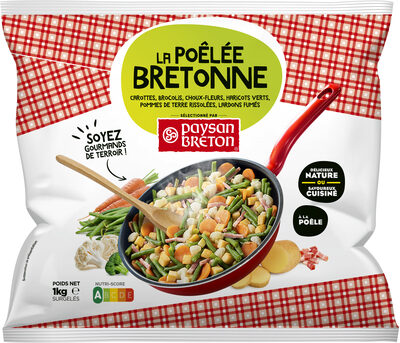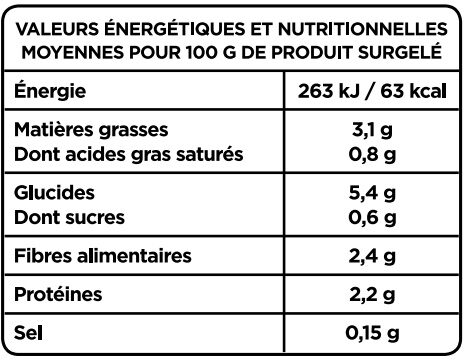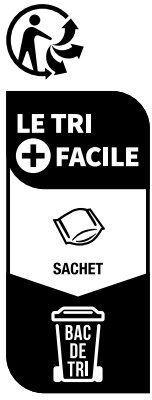La Poêlée Bretonne - Paysan breton - 1 kg
Barcode: 3184036774726 (EAN / EAN-13)
Common name: Mélange de légumes 74 %, pommes de terre rissolées préfrites, oignons préfrits et lardons cuits fumés, surgelés.
Quantity: 1 kg
Packaging: Bag, Frozen, fr:Portionnable
Brands: Paysan breton
Categories: Plant-based foods and beverages, Plant-based foods, Fruits and vegetables based foods, Legumes and their products, Legumes, Vegetables based foods, Frozen foods, Meals, Frozen plant-based foods, Frozen legumes, Frozen vegetables, Frozen plant-based foods mixes, Pan-fried dishes, Frozen ready-made meals
Labels, certifications, awards: No GMOs, No palm oil, Nutriscore, Nutriscore Grade A, Produced in Brittany
Origin of ingredients: France
Manufacturing or processing places: Loudéac, France, Bretagne
Traceability code: EMB 22136 - Loudéac (Côtes-d'Armor, France)
Countries where sold: France
Matching with your preferences
Report a problem
Data sources
Product added on by kiliweb
Last edit of product page on by roboto-app.
Product page also edited by ennoia11, openfoodfacts-contributors, packbot, paysan-breton-les-surgeles, riklo, yuka.Uy9zUEU2UmNsdXNIbi9BZy9oVHpvb3hSNmJ1T0FUaWJPcllOSWc9PQ, yuka.VFp3Z1Rhc0UrYWNzd2ZJNDhnM3cvT0pRNU1Md1FIL3BNdW9WSVE9PQ.












